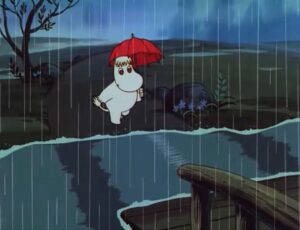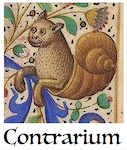In Finland, Midsummer week is usually when people take their holidays and go out camping, boating, fishing, swimming naked in a lake, or doing all kinds of things outdoors. (No, not that. Well, maybe that too).
It is also when it usually rains.
This year… Well, for a while it seemed as if it was going to rain. While the whole previous week and even this same week until yesterday has been warm and sunny, feeling almost more like Spain than Finland, yesterday it started to rain, and I thought it would go on raining for the whole weekend, so I got a bit depressed.
But now the sun has come back, and I’m happy again. It’s funny how a little change in the weather can make such a huge difference in our mood.
However, it is still unclear if it will be rain or shine during the whole weekend. Midsummer this year is June 24-25.
Midsummer is usually commemorated with bonfires, but this year they have been prohibited because of the risk of forest fires, at least in this area. Getting drunk is another popular past time, and that’s why the number of people drowning in lakes seems to increase exponentially in Finland during those two days. This has not been forbidden, however — at least, not so far.
I hadn’t realized, but Midsummer is actually Saint John’s Day (and its eve), or the feast of Saint John the Baptist, commemorated every year on June 24, which is a popular feast in Portugal, Spain and other European countries, and also what, in Brazil, is called “Festa Junina”, or June festival, but also “Festa de São João”. The only thing is that, in Brazil, being in the Southern hemisphere, it is midwinter, so people drink mulled wine and eat pine nuts. The large bonfires, however, help you keep warm, although it doesn’t get all that cold in Brazil, even in winter.
In Finland, the holiday is called Juhannus, also because of Saint John, but it is rarely religious these days, and since 1955 it is no longer fixed on June 24, but scheduled to fall always on a weekend. It can be any day from 20 to 26th of June.
As usual in those cases, pre-Christian pagan celebrations have become mixed with Christian religious festivities, and so it is unclear when the bonfire tradition began. In medieval times, they were said to keep witches and evil spirits away. It was also common to swim in lakes or rivers to wash away the sins, and in remembrance of the baptisms performed by Saint John. But there are evidences that celebrations of the Summer solstice in general are a much older affair, although the actual solstice, of course, is on June 21 and not 24.
These are my final days in Finland, so that’s why I felt such melancholy when I saw rain falling after what seemed a very promising summer. (I was told that, on the contrary, this has been, so far, a very good summer for Finnish standards — sometimes, it really rains for months).
It has been a nice if uneven experience to be here for a while in these Northern lands, and writing a little bit about it, even if it doesn’t seem to have interested many readers. I guess the world is becoming too crazy right now for anyone to focus on more innocent subjects such as travel and culture and art.
Besides bonfires and lake swimming, there are also some traditional folk rites associated with love and fertility during those two days — i.e. if a young maid collects seven types of flowers and puts them under her pillow on the eve of Midsummer/Saint John, she will see her future husband in a dream. As you may remember, it is very similar to the tradition of The Eve of Saint Agnes, about which I wrote a while ago.
I don’t know if this works for men, too. I don’t think so.
One of the main characters of the Kalevala, Finland’s national epic, is the singer Väinämöinen, an old shaman and magician. Many of the episodes are about him trying to find a wife — always unsuccessfully. The most famous story is that of Aino, a young girl whom he wins the right to marry after winning a song contest with a rival, Aino’s brother. But she prefers to drown herself instead of marrying the old sage. Disappointed, Väinämöinen goes fishing to forget his troubles, and when he’s in the boat, lost in thoughts, she comes back as a fish and mocks him. Then she disappears forever.
Poor Väinämöinen. I feel his pain. I think that I, too, haven’t found what I’ve been looking for in Finland, whatever that was. But it has been a nice ride.
At the end of the long epic poem, replaced as King by a wise Child born of a virgin, Marjatta — an obvious Christian allegory, even if the details are different — Väinämöinen leaves the country, giving his musical instruments to his people as a legacy.
Perhaps it is time for me to take my leave too?




Well, waddya know. After a sunny start, it rained quite a lot, now it’s cloudy, but the sun might yet come out again. Not the best weather for boating, but probably good enough to get drunk and drown in a lake.